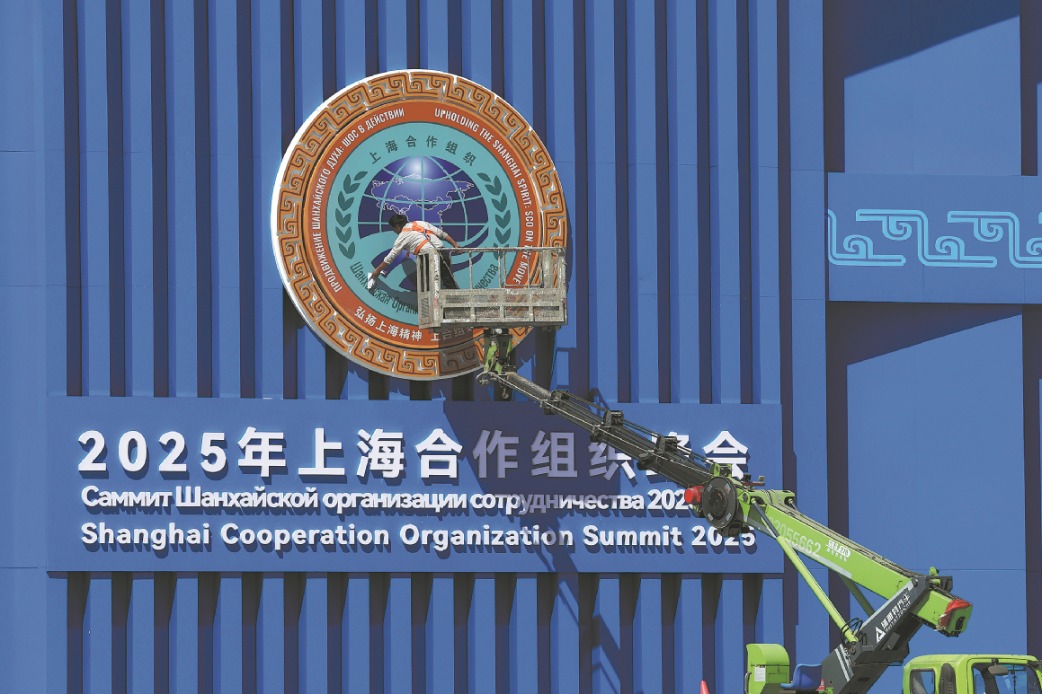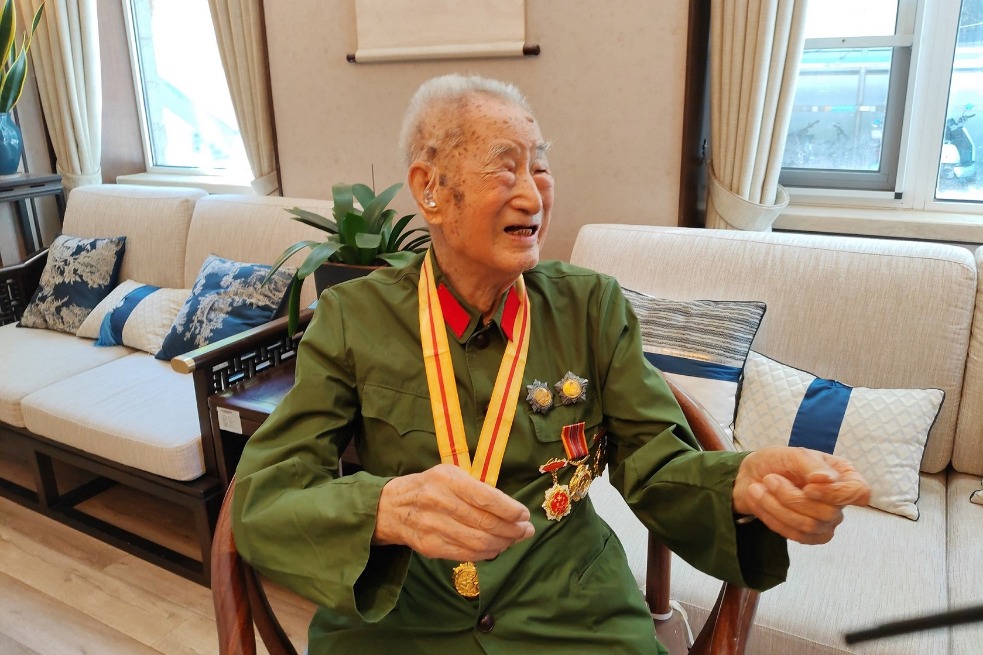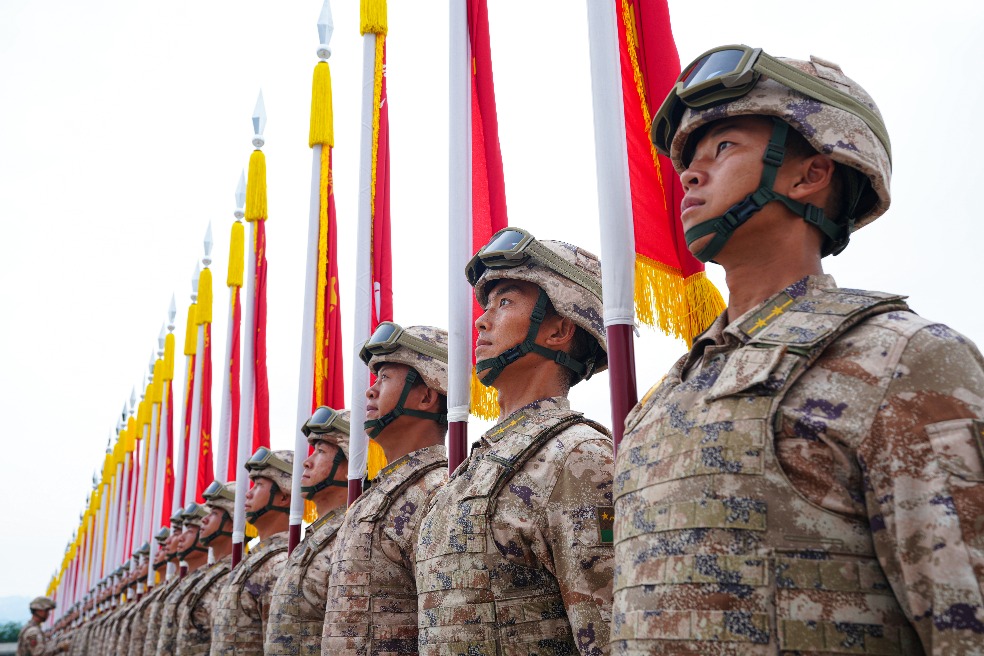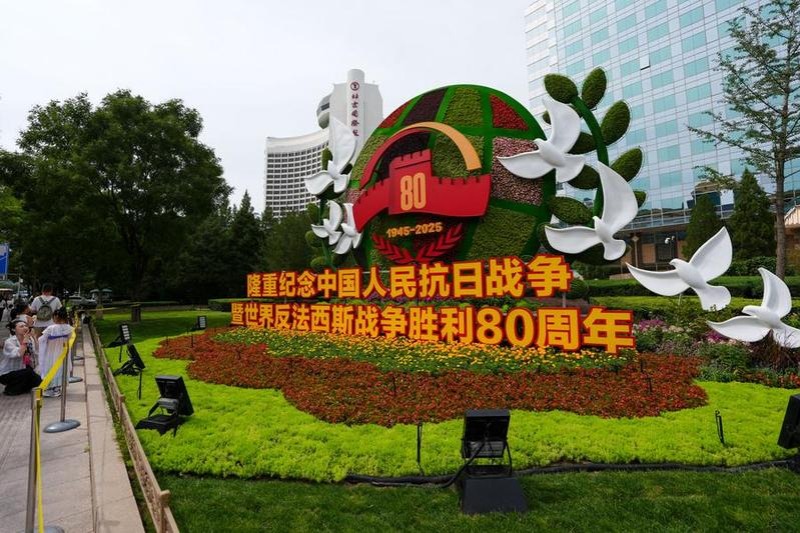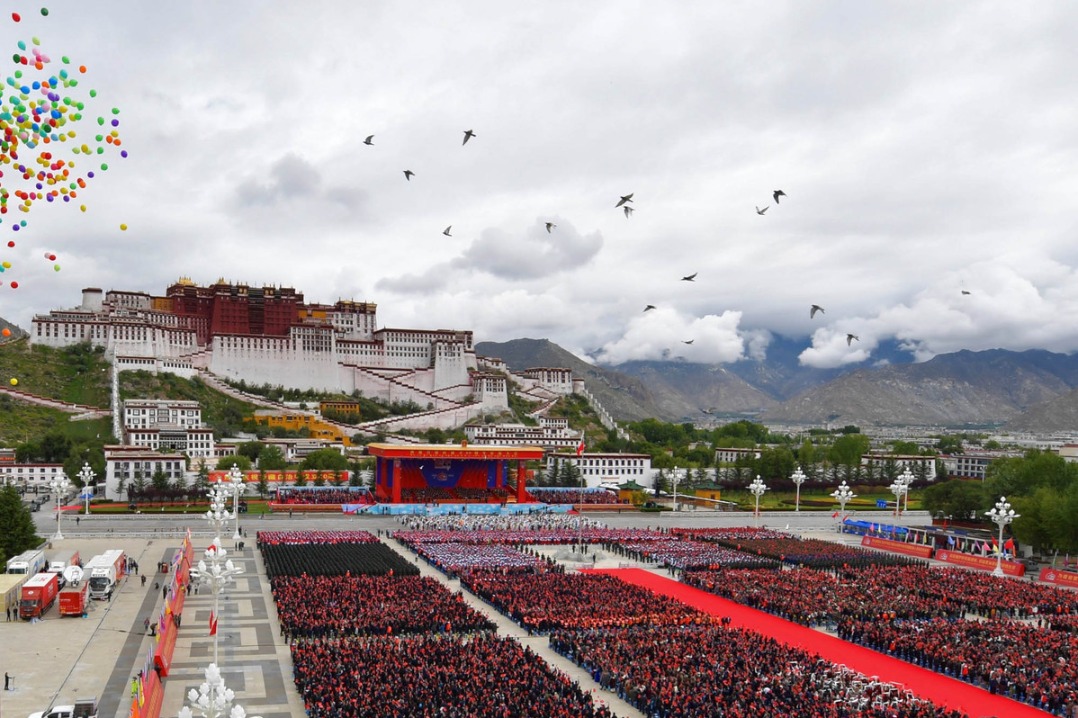HK's electoral reform promotes democracy

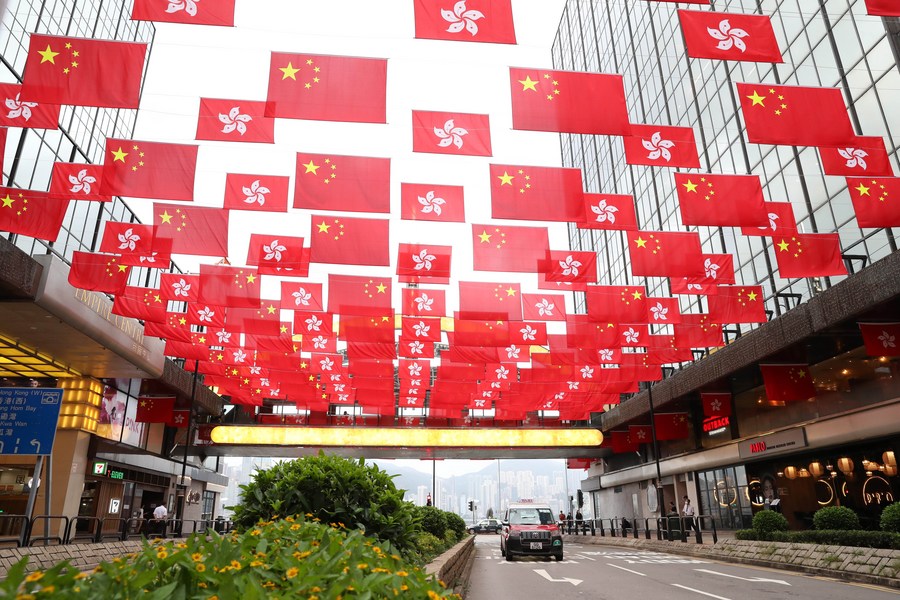
Thanks to the principle of "one country, two systems", Hong Kong has been adhering to the rule of law and holding democratic elections since its return to the motherland in 1997. But adherence to the rule of law demands that, apart from following the Basic Law of Hong Kong, the special administrative region also follows the Constitution of the People's Republic of China, because the SAR is an integral part of China.
The Basic Law stipulates the system and policies to be instituted in the Hong Kong SAR, and is the legal and institutional basis of "one country, two systems", which is characterized by "Hong Kong people governing Hong Kong" and enjoying "a high degree of autonomy". But the Basic Law, on which "one country, two systems" is based, has been formulated in accordance with the Constitution of China. This means there cannot be no "two systems" without "one country".
But by pitting "two systems" against "one country", and democracy against patriotism, some radical elements had been taking advantage of the elections and social movements to push forward their "color revolution" agenda in Hong Kong. It is the attempt to separate "two systems" from "one country" that was the root cause of the political and social unrest from time to time, including in 2019 when the radicals unleashed mayhem in Hong Kong in order to fulfill their hideous design of splitting the SAR from the motherland.
To prevent such incidents and clip the wings of the separatist forces in Hong Kong, the National People's Congress, the country's top legislature, enacted the National Security Law in Hong Kong in 2020, and the SAR government implemented electoral reforms in 2021. The two measures will also resolve the difference between patriotism and democracy and help establish a new order of "patriotic democracy" in the SAR.
New rules plug electoral loopholes
The fact that Hong Kong will hold the first election on Sept 19-the sub-sector ordinary election to the Election Committee-since the implementation of the electoral reforms shows that democracy is very much alive in the SAR.
Good governance largely depends on an executive team which is professional, honest and loyal to the country. That's where "patriots administrating Hong Kong", which is an improvement on "Hong Kong people governing Hong Kong" comes from. The electoral system, after the reform, has become more democratic and representational in nature.
To begin with, based on the principle of "patriots administering Hong Kong", the new electoral system has a strict vetting procedure for candidates, which will ensure the radicals and separatists cannot contest the elections and cause more trouble, and only patriots assume positions of political importance.
Second, the electoral reform has overhauled the composition and functions of the Election Committee and made it more balanced, inclusive and democratic. With 1,500 seats (from 1,200 originally), five sectors (four originally) and 40 sub-sectors, the revamped committee will now be responsible for the election of the Hong Kong chief executive, nomination of all Legislative Council members, and direct election of 40 legislators (out of a total of 90).
Thanks to the reform, the proportion of grassroots and youth groups, and local representatives of State institutions (in the fifth sector) has also increased, making the Election Committee truly representational under the "one country, two systems" framework.
Third, unlike the previous reforms which some political forces used to pit "democracy" against "patriotism", the electoral reform this time will allow capable people to better serve the city, and prevent election candidates from adopting extreme positions in return for political capital while boosting competition based on talent and ability.
Fourth, with the help of the National Security Law and the electoral reform, the SAR government can strengthen law enforcement and bring to justice the separatists seeking foreign help to fulfill their narrow political goals, while Hong Kong residents can better exercised their voting rights and enjoy "a high degree of autonomy" and which will strengthen "one country, two systems".
As the first election after the reform, the Election Committee sub-sector ordinary election is a test to gauge the level of public support the new electoral system enjoys. That patriots of all ages and from across professions have registered to take part in the election while the radicals have kept away either for fear of being screened out or to boycott the election to stigmatize the new electoral system shows the reform has been effective.
The vetting body has disqualified only two applicants because, despite strictly following the guidelines, it is mindful of the diversity of the voters.
The election is being held at a critical time-a time when Hong Kong is emerging from the chaos of violence and widespread sociopolitical disruption, and the devastating impact of the COVID-19 pandemic. Against this background, the National Security Law has helped the Hong Kong authorities to thwart the radicals' attempts and bring most of them to justice. The law has also helped restore the rule of law in the city.
HK needs to ride the tide of Greater Bay Area
And the return of order will help Hong Kong play a bigger role in the development of the Guangdong-Hong Kong-Macao Greater Bay Area, which has already gained pace due to increasing growth of Hengqin in Zhuhai and Qianhai in Shenzhen, both in Guangdong province, which have become powerful engines of the Greater Bay Area.
Hong Kong's deeper involvement in the Greater Bay Area will also help expedite its integration into the country's economy, which in turn will add to the city's stability and improve its governance.
Given the almost yearlong turbulence in 2019, there seems to be a general consensus among Hong Kong residents that social stability should be maintained and economic growth increased. The residents also want the SAR government to narrow the wealth gap in the city, which apparently is one of the main reasons why so many youths were unhappy with the authorities in the first place.
Also, the sanctions imposed by some Western countries, especially the United States, have made Hong Kong residents realize the importance of safeguarding the sovereignty and territorial integrity of the Chinese nation, and strengthening "one country, two systems".
The unprecedented and rapid changes in and outside Hong Kong should be enough for the SAR residents to understand the wide range of opportunities the country's rise has created for them to capitalize on. Besides, the National Security Law and development projects such as the Greater Bay Area and the Belt and Road Initiative will help boost Hong Kong's economic growth.
But all these achievements can be made only when "patriots administrating Hong Kong" provide a stable social environment, which is critical to development. And we hope the new electoral system and the first post-reform election strengthen "one country, two systems" and signal the beginning of a new era of good governance and sustainable growth for Hong Kong.
The views don't necessarily represent those of China Daily.
Contact the editor at editor@chinawatch.cn


















